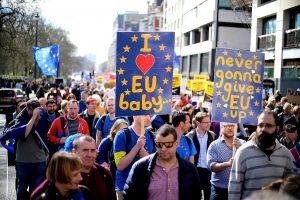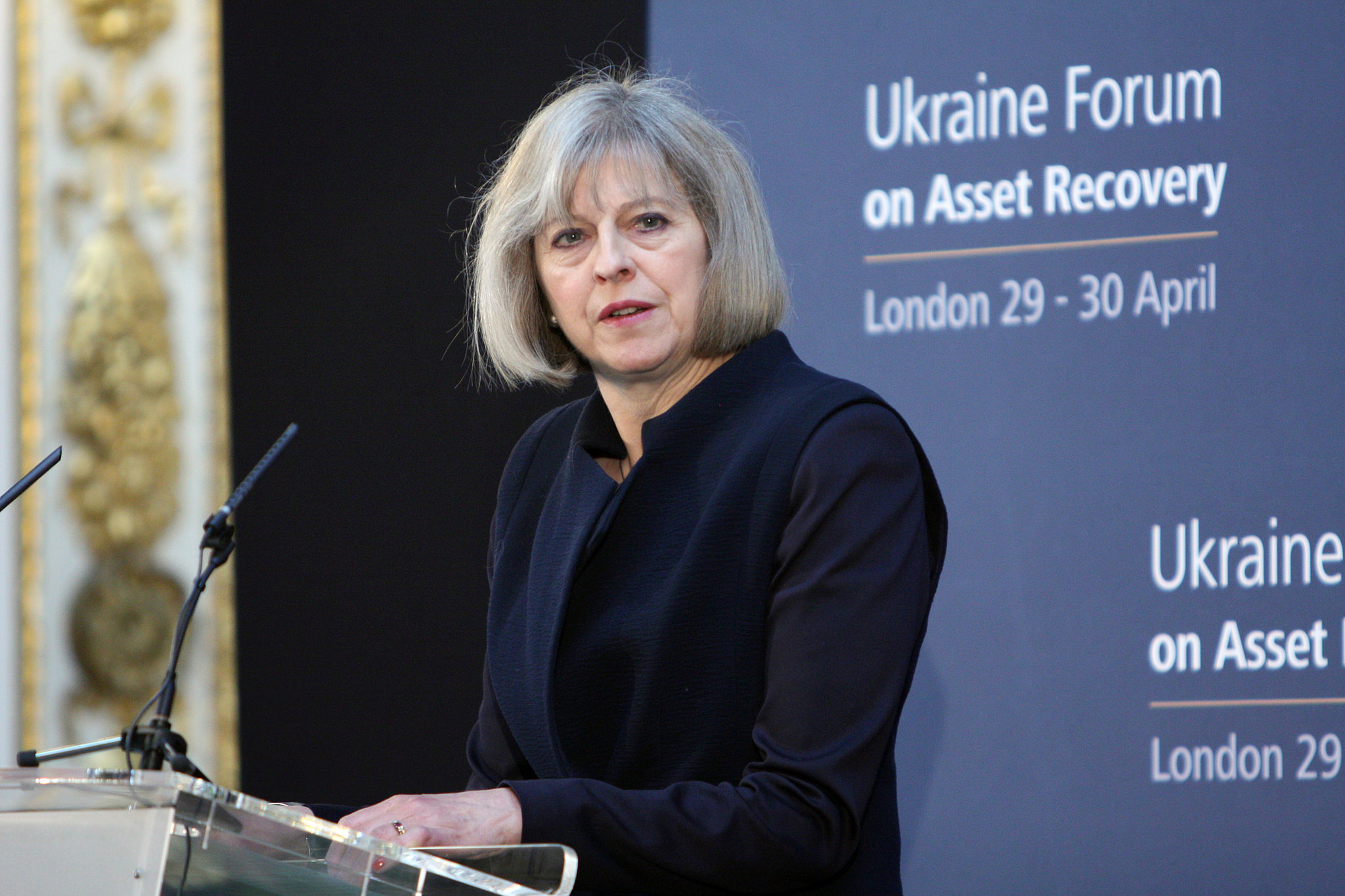In the months leading up to Britain’s historic referendum to leave the European Union, members of the Leave campaign made a number of promises to the British people, among them, a rejection of the principles of free movement demanded by the European Union, and the halting of membership fee payments that were viewed to offer little return. A common theme among these assurances was that exiting the European Union would not harm the British economy. Indeed, a number of prominent figures in the campaign claimed that Brexit would have a positive impact on the economy, freeing the United Kingdom from unnecessary regulations and encouraging reforms. These promises were enough to sway 52 percent of the more than 30 million people that turned out to vote. Now, the world waits to see what Brexit will bring.
The process of leaving, far from simple, has already begun, and its implications have been thrust under more scrutiny than they ever were in the months leading up to the referendum. As soon as Article 50, the provision that allows member states to leave the European Union, was invoked, the United Kingdom began its two-year window to come to an agreement with the European Union about its withdrawal barring a unanimous agreement for extension. Theresa May triggered this process on March 29, a decision that prompted Donald Tusk, current president of the European Council, to call a meeting of the remaining 27 EU member states in late April. Following this timeline, negotiations between the European Union and Britain formally began in June, leaving the two bodies with 22 months to come to a final agreement that the European Council, European Parliament, and Britain’s two Houses of Parliament will vote on.
Arranging the Agreements
This deadline is worrying to some, who claim that the two-year time schedule is not enough to properly wade through the political and bureaucratic realities that exiting entails. Negotiations cover a wide swath of topics and pose several challenges—particularly economic ones. To begin with, as a party to the European Union, Britain made a number of legal commitments that it is still expected to honor—the largest of which is investment in an infrastructure cohesion fund responsible for projects throughout the European Union, a program that makes up roughly a third of the EU’s budget. Other commitments include portions of the EU’s deficit and official’s pension liabilities. Estimates of the EU’s liabilities—12 percent of which the United Kingdom is responsible for—land at about €600 billion, putting the UK’s responsibility at €60 billion.
One of the most important economic factors facing the United Kingdom in its attempts to exit is the single market, an internal market between the member states of the European Union that ensures the free movement of goods, people, services and capital. Under this market, goods traded between member states are not subject to any tariffs. During his efforts to push Britain to leave the European Union, Boris Johnson, a prominent Leave campaign leader, assured voters that the United Kingdom would continue to have access to the European Union’s single market. However, in January of this year, Theresa May confirmed her commitment to a “hard Brexit,” stating that Britain will not be pushing for single market access. While membership in the European Union is not a requirement for access to the single market, membership in the European Economic Agreement is. Being a party to this agreement is conditional on the nonnegotiable acceptance of a number of EU laws. The most notable of these are the “four freedoms,” requirements for participants in the free market to allow for the free movement of goods, services, people, and capital—a prospect incompatible with Britain’s goals.
Leaving the single market means that Britain must reach new economic and trade agreements with the rest of the European Union. Gridlock between the two governing bodies might forestall an economic agreement until the deadline of Britain’s official exit from the European Union. An inability to reach a deal before Brexit occurs would mean that Britain and the European Union would be obligated to operate according to the trade regulations outlined by the World Trade Organization. Both Liam Fox, Britain’s International Press Secretary, and David Davis, Secretary of State for Exiting the European Union, have acknowledged to the people, government, and exporters that there exists a real possibility that this scenario will occur.
Economic Entanglements
The political and economic repercussions of a failure to reach a trade agreement would be widespread. While Britain does not need to reapply to the WTO following its exit from the European Union, the organization has a lot of work to do in negotiating the UK’s new trade schedule. Schedules in Britain—the tariffs and subsidy arrangements that farmers and companies are subject to—have up to this point been decided by the European Union as a whole. Currently, Britain exports about half of all of the goods it produces to the European Union, and 63 percent of its exports are linked to its membership within the European Union. While decreasing tariffs and manufacturing, as well as Europe’s shrinking share of market importance create a small cushion from economic fallout caused by reverting to the WTO rules, the strength of that cushion varies across sectors, and is particularly weak among manufacturing.
Once outside of the European Union, British exports into the EU economic zone will be subject to tariffs they were previously exempt from. On average, EU tariffs stand at just under 5 percent, and if Britain reverts to WTO rules, dairy and meat producers would face tariffs that could reach as high as 40 percent. Exporters would also be subject to Non-Tariff Barriers, barriers to trade that can be equally, if not more, restrictive than customs tariffs. This would mean that throughout the European Union, British exports would be subject to a number of new regulations pertaining to how products are manufactured and handled, as well as the amount of market penetration they are granted.
The Independent put the cost of these new tariffs to exporters in general at €4.5 billion a year, claiming that the real cost would very likely be much higher. Although foreign investments are still expected to continue, London’s role as a financial center is called into question in light of the UK’s lost influence on single market trade governance. “The reality of the interdependence between the UK and the EU [extends beyond] tariffs to all sorts of norms and standards because the EU is a very powerful market and regulatory power,” said Harvard Kennedy School Professor Muriel Rouyer in an interview with the HPR.
Yet, in a rejection of these principles, some leaders have already called for the deregulation of EU norms within Britain, a prospect that Harvard Kennedy School Professor Jose Beneyto warned against in an interview with the HPR. “A ‘race to the bottom’ in terms of regulations and taxes would be very detrimental,” Beneyto said. “If the UK … tries to make itself a cheap target in terms of low taxes and regulations, it would be very negative for the entire global system,” leading the country to experience a “counterproductive backlash.”
Far Reaching Consequences
While the United Kingdom may choose to simply mirror the arrangements it was previously held to, Brexit presents an opportunity for a number of countries to voice their concerns with what they view as overly protectionist policies that inhibit trade. China, for example, is likely to want to revisit the UK’s policies on steel dumping, and a number of food-importing countries will likely find fault with high subsidies given to farmers. Specifically, if Britain chooses to no longer be subject to the agreements of the European Union, it may face added pressures to discard the Common Agricultural Policy level subsidies, a system of subsidies and programs for farmers which the country previously employed.

E.U. supporters march in London to commemorate the signing of the Treaty of Rome, March 2017.
Renegotiating schedules places pressure on the United Kingdom in other ways as well. As a member of the European Union, Britain is currently subject to many multilateral trade agreements. After Brexit, these agreements will have to be renegotiated and readjusted to take into account Britain’s own share of the quotas that went into them. Already a drawn-out process, the issue is further complicated by the need for unanimity in any trade schedule drawn up under the WTO. Renegotiating these will require an immense amount of cooperation and effort by the international community.
Pascal Lamy, former chief of the WTO, has characterized this scenario as “worse than a deal,” and Donald Tusk tweeted in March that, “No deal [is] bad for everyone, above all for [the] UK.” Britain however, does not seem to be prepared for this reality. In fact, representatives have publicly put forward the idea that “no deal for Britain is better than a bad deal.” Brexit Secretary Davis however, admitted to Parliament that the government had yet to carry out an assessment of the economic consequences of leaving the European Union without an economic deal, stating that it may be done within a year. This is a concerning timeline given that the United Kingdom will already be halfway through the negotiation process by then.
Davis also confirmed to Parliament that financial firms stationed in Britain would be likely to lose their passporting rights within the European Union. Passporting is a right reserved to firms that are a part of the European Economic Agreement that allows them to conduct their business within other EEA countries without getting authorized in each country. Without passporting rights, multinational corporations stationed in Britain will have to go through a lengthy bureaucratic process to get authorized within every country that they want to do business with. Along with being costly for firms, this also means that the financial sector in London, which contains a number of large international banks and is responsible for over £60 billion in tax a year and 1 million jobs, will be put under additional stress. London’s Special Representative to the European Union, Jeremy Browne, estimated that job losses within the city could be as high as seven percent.
Even extracting London from the European Union’s web of interdependence is not so black and white. As Browne explained to the HPR, London is the “one large global financial sector in Europe … The other financial centers in Europe are national or regional level centers. London’s competition is Singapore and New York, it’s not Frankfurt and Paris.” For this reason, he thinks that while “there may be some activity that leaves the city of London as a result of Brexit,” it is unlikely that another European city will usurp London and become the financial center of Europe.
Here, Browne is outlining a reality that British voters did not seem prepared for. “The reality is interdependence,” Rouyer summarized. “Europe is a form of soft, sticky power that is hard to get rid of. May will have to come to terms with people who do not have a nationalistic stance on everything and … align the actual degree of sovereignty that you have with the desired level.”
Further complicating matters, is Britain’s newly hung parliament. In early June, Theresa May called for an election, perhaps hoping her party would gain more power in parliament and win more influence in the ongoing Brexit negotiations. As it turns out, her Conservative party failed to win a clear majority. This is only the fifth hung parliament in British history, and will significantly limit May’s Brexit negotiating power, potentially leading to a messier and increasingly protracted process. Good or bad, the effects of Brexit will permanently root themselves in discussions of international politics and economics from here on out.
Image source: Flikr/Ukraine Forum on Asset Recovery // Wikimedia/Ilovetheeu
